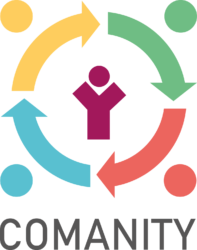A number of core skills and abilities are called for when working with young people especially those from vunerable and marginalised groups. These vary according to context , the issues and dynamics that prevail within any particular situation, and the power dynamics that inevitably play a part.
Key factors that are widely referenced include aspects of building rapport and trust, empathy and an ability to not only empathise, but indicate that, to those that we are working with – this may be no more than ‘active listening’, but may require considerably more. It needs to be remembered that empathy is not sympathy and that empathy is a choice.
Inevitably, this comes down to an understanding of relationships and the context in which these relationships occur. The quality of these relationships is a key concern.
Below are some links to material that may be helpful or thought provoking.
- Five Relationship Skills-Building Tips for Youth Workers: https://pro.psychcentral.com/five-relationship-skills-building-tips-for-youth-workers/
- Building a Relationship through Effective Interpersonal Engagement – Youth Work Ireland: http://youthworkireland.ie/images/uploads/general/buidlingrelationshipthrougheffective.pdf
- Relationships matter – a conversation tool and more from the IRSS in Scotland: https://www.iriss.org.uk/resources/tools/relationships-matter-conversation-tool
- Essential Skills for Youth Work Practice – Sage Publications: https://us.sagepub.com/sites/default/files/upm-binaries/66923_Sapin___Essential_Skills_for_Youth_Work_Practice.pdf
- Also see the Open Education resource from the Open University referenced in another post on trust: https://www.open.edu/openlearn/ocw/mod/oucontent/view.php?id=19884&printable=1
- And of course – the COMANITY Emotional Intelligence learning modules and online tool.

